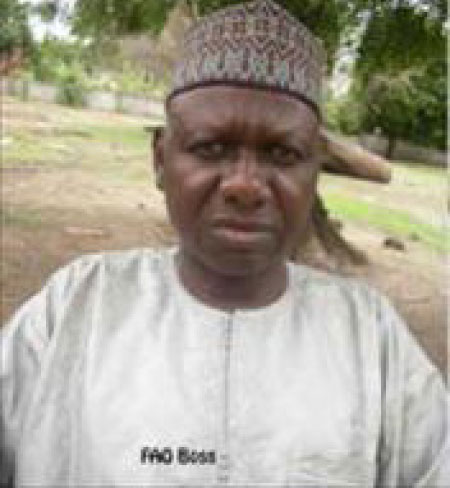
A 7.6 million euro food security programme in The Gambia formally kicked off yesterday with a two-day inception workshop on MDG1c initiative project at the Ocean Bay Hotel and Resort in Cape Point Bakau.
The workshop, which brought together key stakeholders, seeks to discuss the MDG1c initiative on improving food security through crop production intensification and school-feeding programme in The Gambia.
It is being organised by FAO and funded by the European Commission (EU) to support the Government of The Gambia to accelerate progress towards achieving the MDG1c, which is to reduce by half, between 1990 and 2015, the proposition of people who suffer from hunger.
It would be recalled that the initiative was formerly launched on Tuesday 11 June 2013 at Pakaliba in the Lower River Region.
The initiative is part of the overall development project which seeks to establish sustainable commercialised agriculture that will facilitate the foundation of a Nationally Owned Home-Grown School Feeding Programme.
Delivering the opening statement, Ada Gaye, permanent secretary, Ministry of Agriculture, recalled that in adopting the Millennium Declaration Protocol in year 2000, world leaders committed themselves and their countries to working towards the realization of set of goals called the Millennium Development Goals (MDGs), with 2015 set as the target year.
Permanent secretary Gaye went further to explain that this declaration brought together the major goals that emerged from international conferences and summits during the 1990s.
The MDGs commit the international community to combat poverty, hunger, disease, illiteracy, environmental degradation and discrimination against women, he said.
“With few years to the target year, signals show that many countries are falling to achieve some critical MDGs, among which is MDG1; i.e. eradicating hunger and extreme poverty,” he remarked.
Madam Gaye added that the Government of The Gambia is committed to achieving the MDGs more particularly with regard to the MDG-1c targets but admits that there are challenges.
For his part, Dr Babagana Ahmadu, FAO Representative to The Gambia, said the initiative is bi-laterally funded by the European Commission at a tune of 7.6 million Euros within the framework of the 10th European Development Fund (EDF).
Dr Babagana Ahmadu further said the role of FAO in the MDG1c is inline with its mandate, which is to raise the level of education, food agricultural productivity and to better the lives of rural population and contribute to the growth of the world economy.
“In the 1996 World Food summit, FAO adapted a strategy framework the first role of which is to ensure access to all people at all time to sufficiency nutritionally adequate and self-food ensuring that the number of undernourished people are reduced by half by no later than 2015.”
For her part, Ms Agnes Guillaud, Charge d’ Affaires of the European Union to the Republic of The Gambia, said the MDGs are eight international development goals officially established following the UN Millennium Summit in 2009.
All 189 UN member states agreed to achieve these goals by the year 2015, which is now less than two years away.
Madam Agnes Guillaud added that in September 2010, ten years after the initial UN summit, a follow-up UN conference had been uneven.
“Some countries have achieved many of the goals, whilst others are not on track to realize any,” she said.
According to her, at the 2010 UN Conference, the European Commission announced the establishment of a 1billion Euro fund called the MDG Initiative, to help countries like The Gambia, which were falling behind in attempts to achieve their MDGs.
“Earlier this year, the EU signed a financing agreement with the Government of The Gambia for a 7.6 million euro (approximately D380 million) for an MDG Initiative project to improve food security through crop production intensification and school-feeding programme.



